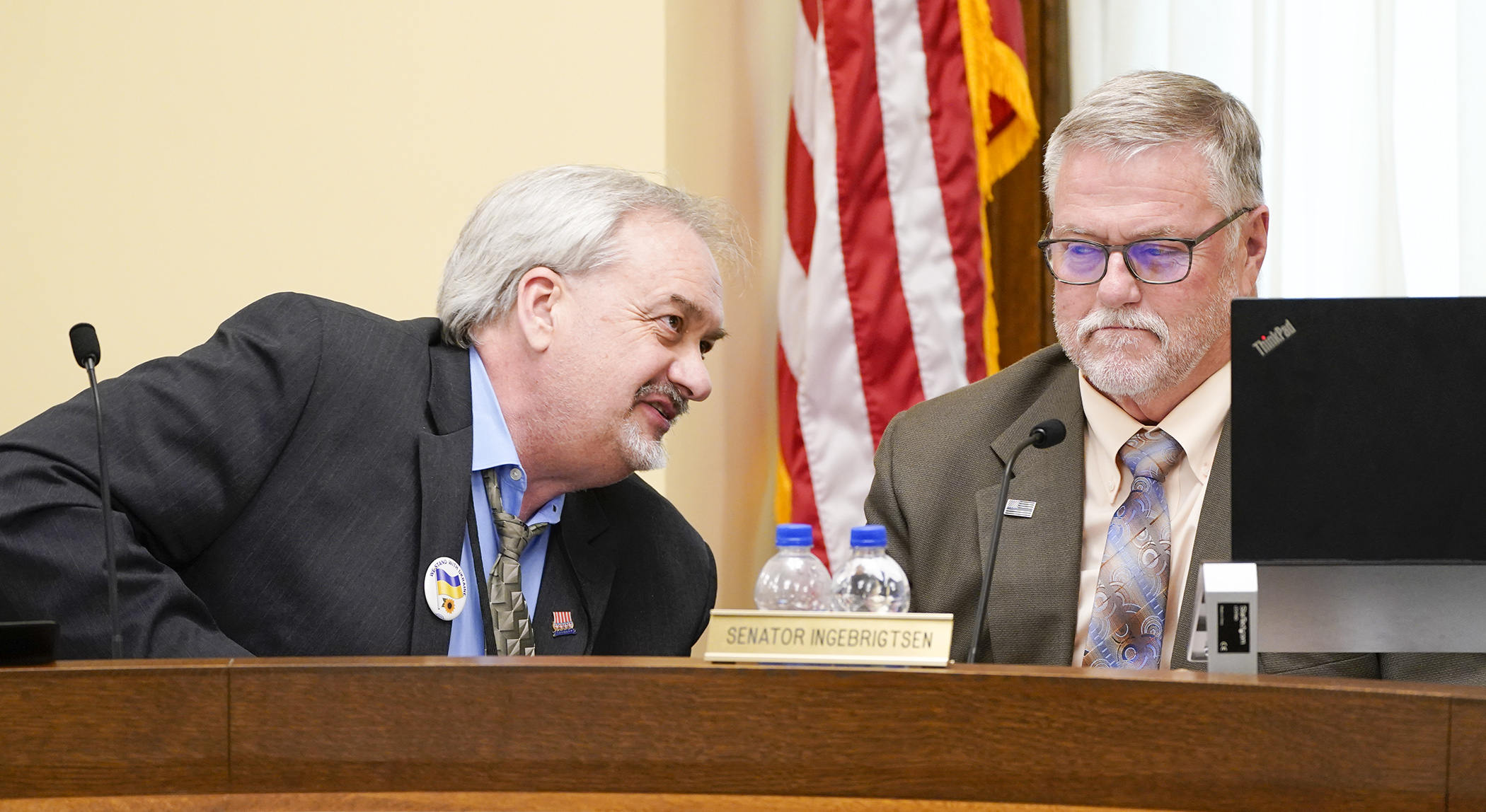What’s the difference? Environment conference committee compares bills

With more than $240 million in appropriations and several statutory changes to be reconciled, a conference committee started work on the state’s omnibus environment and natural resources supplemental finance and policy bill.
The House version of the bill is looking to spend some of the state’s surplus — $249.6 million worth in fiscal year 2023 — while the Senate only looks to spend a modest $8.44 million while focusing on many new policies.
The result is a $241.2 million difference in the two versions. The 10-member conference committee, led by chairs Rep. Rick Hansen (DFL-South St. Paul) and Sen. Bill Ingebrigtsen (R-Alexandria), received a walkthrough of the similarities and differences of HF4492/SF4062* Monday.
“I know that the gulf is wide and deep between us in the amount of money,” Hansen said. “But I’m hoping there are some things that we can come together on.”
Indeed, before the meeting adjourned, the committee unanimously approved an Ingebrigtsen motion to adopt all provisions that are identical in the policy sections of the two bills, and to accept the House language on those that are similar.
The House would appropriate $68.9 million more to the Board of Water and Soil Resources, $54.6 million more to the Pollution Control Agency, $52.2 million more to the Department of Natural Resources and $9.5 million more to Explore Minnesota Tourism.
Of those appropriations, the largest differences would be in the House’s appropriations of:
- $30 million to the Board of Water and Soil Resources for Conservation Reserve Enhancement Programs;
- $25 million to the DNR for climate adaptation for natural lands and waters;
- $20 million for adaptation action grants and water storage, half to the Pollution Control Agency and half to the Board of Water and Soil Resources;
- $10.1 million to the DNR for ash tree replacement grants;
- $10 million to the Pollution Control Agency for waste prevention recycling grants and loans; and
- $10 million to the Board of Soil and Water Resources for a Conservation Reserve Enhancement Program state incentive.
Other major funding included in the House proposal but not in the Senate is $13.1 million to the Metropolitan Council and a one-time repayment to the Metropolitan Landfill Contingency Action Trust of $29.1 million.
The largest appropriations in the Senate bill for fiscal year 2023 are $1.6 million to the DNR for land acquisition (which is also in the House bill); $1.5 million from the Pollution Control Agency Remediation Fund to clean up a school that will be destroyed in Lake of the Woods County; and $1 million to Explore Minnesota Tourism for large scale events promotion.
[MORE: View the spreadsheet]
The House appropriations and policy changes would also create a Minnesota Outdoor Recreation Office, which is not included in the Senate version. The bill would fund the office with $1.7 million in fiscal year 2023 from the General Fund, with an additional $500,000 in the next biennium.
Proposed provisions included in both versions but have differences include:
- walk-in access expansion to areas for activities other than hunting;
- water-use permit sustainability standards; and
- changes to the lottery-in-lieu tax of state lottery sales.
Some of the major House provisions that are not included in the Senate bill would:
- prohibit PFAS in carpet and textiles, cookware, cosmetics, juvenile products and ski wax;
- prohibit the use or sale of seeds treated with neonicotinoids;
- establish state goals for soil health and restoration of peat lands;
- make changes to boater safety permitting and education; and
- add regulations regarding white-tailed deer farms, including fencing requirements and prohibiting new registrations, certain movement bans and increased testing for chronic wasting disease.
[MORE: View the policy differences]
Side-by-side comparisons of the bill can be found here, here and here.
“With the disparity of our two bills, how do we resolve such a substantive difference?” asked Sen. Bill Weber (R-Luverne).
“Well, I’m not sure,” Ingebrigtsen replied. “We’re a long ways off; we really are. There’s a lot of spending here I’ve never seen before. There’s a real difference about what we should do with those dollars. And it is a non-budget year.”
“As for the issue of waiting until next year, we’re paid to be here this year,” Hansen said. “And I don’t think the pests got the memo. I don’t think the emerald ash borers are going to wait until next year for funding.”
The commissioners of the Department of Natural Resources and the Pollution Control Agency testified, as did the executive director of Board of Water and Soil Resources. All agreed on the need for approving new funding this year, particularly in order to unlock federal funds that otherwise wouldn’t come to the state.
— Session Daily writer Rob Hubbard contributed to this story.
Related Articles
Search Session Daily
Advanced Search OptionsPriority Dailies
Speaker Emerita Melissa Hortman, husband killed in attack
By HPIS Staff House Speaker Emerita Melissa Hortman (DFL-Brooklyn Park) and her husband, Mark, were fatally shot in their home early Saturday morning.
Gov. Tim Walz announced the news dur...
House Speaker Emerita Melissa Hortman (DFL-Brooklyn Park) and her husband, Mark, were fatally shot in their home early Saturday morning.
Gov. Tim Walz announced the news dur...
Lawmakers deliver budget bills to governor's desk in one-day special session
By Mike Cook About that talk of needing all 21 hours left in a legislative day to complete a special session?
House members were more than up to the challenge Monday. Beginning at 10 a.m...
About that talk of needing all 21 hours left in a legislative day to complete a special session?
House members were more than up to the challenge Monday. Beginning at 10 a.m...